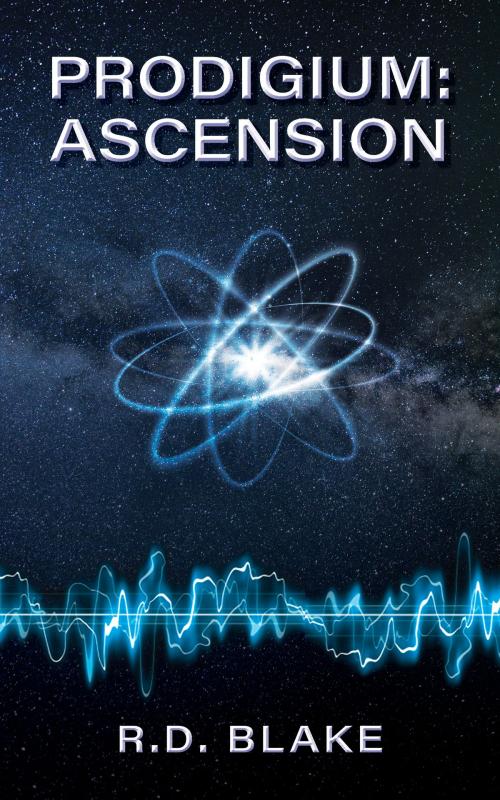| Author: | R. D. Blake | ISBN: | 9780987982674 |
| Publisher: | R. D. Blake | Publication: | August 18, 2017 |
| Imprint: | Smashwords Edition | Language: | English |
| Author: | R. D. Blake |
| ISBN: | 9780987982674 |
| Publisher: | R. D. Blake |
| Publication: | August 18, 2017 |
| Imprint: | Smashwords Edition |
| Language: | English |
Faith. Fate. Two words so full of potency, yet fraught with nuances that touch on many of humanity’s hopes and fears. Two words commonly employed as if they are mutually exclusive—that the realities they represent exist within continua in complete opposition to each other.
Forty-five hundred years earlier, through the remarkable efforts of one woman, humanity sprang outwards from the surface of Earth to reach for the stars, for new worlds to mould and then inhabit. A new beginning was enabled, one that put behind the fears that humankind would forever be doomed to reside on a world that was rapidly overheating, running out of resources and, it seemed with every passing year, becoming less conducive to life.
Humanity believed it had been freed to spread out across the Milky Way with a future fundamentally set on a new course, a future full of previously unimaginable and burgeoning possibilities. Such vital hopes were held by so many. Yet…yet…
Yet, nothing fundamentally changed. Civilization continued to form unconsciously along lines of inequality and worked to enforce that singular condition. To those who refused to accept that nothing could be done, the question essentially became: what would it take to bring about a permanent and lasting change? A wider, a more encompassing vision? A mass movement? How would it be led? By whom? The answer was surprising. And it came, remarkably in a similar fashion to how humanity first reached for other stars. By two exceptional teenagers.
Both born on the world of Galileo, Jude LeClaire and Bree Matthews could not have been more removed from each other: one born to privilege and wealth, the other to squalor and quasi-slavery. Yet each of their respective states arose from the same source, and it, primarily, among other forces, both propelled them to what they ultimately achieved and yet worked to oppose them.
For akin but unlike on other worlds, an evil has existed on Galileo—for millennia, festering, unsated, hidden, unknown by the bulk of its population.
In the midst of malignant intent, deception and betrayal, both faith and fate worked to bring these two prodigies together—apart, adrift and alone—until they found each other again after the most inauspicious of beginnings.
And by that means they ascended and brought humanity with them.
Faith. Fate. Two words so full of potency, yet fraught with nuances that touch on many of humanity’s hopes and fears. Two words commonly employed as if they are mutually exclusive—that the realities they represent exist within continua in complete opposition to each other.
Forty-five hundred years earlier, through the remarkable efforts of one woman, humanity sprang outwards from the surface of Earth to reach for the stars, for new worlds to mould and then inhabit. A new beginning was enabled, one that put behind the fears that humankind would forever be doomed to reside on a world that was rapidly overheating, running out of resources and, it seemed with every passing year, becoming less conducive to life.
Humanity believed it had been freed to spread out across the Milky Way with a future fundamentally set on a new course, a future full of previously unimaginable and burgeoning possibilities. Such vital hopes were held by so many. Yet…yet…
Yet, nothing fundamentally changed. Civilization continued to form unconsciously along lines of inequality and worked to enforce that singular condition. To those who refused to accept that nothing could be done, the question essentially became: what would it take to bring about a permanent and lasting change? A wider, a more encompassing vision? A mass movement? How would it be led? By whom? The answer was surprising. And it came, remarkably in a similar fashion to how humanity first reached for other stars. By two exceptional teenagers.
Both born on the world of Galileo, Jude LeClaire and Bree Matthews could not have been more removed from each other: one born to privilege and wealth, the other to squalor and quasi-slavery. Yet each of their respective states arose from the same source, and it, primarily, among other forces, both propelled them to what they ultimately achieved and yet worked to oppose them.
For akin but unlike on other worlds, an evil has existed on Galileo—for millennia, festering, unsated, hidden, unknown by the bulk of its population.
In the midst of malignant intent, deception and betrayal, both faith and fate worked to bring these two prodigies together—apart, adrift and alone—until they found each other again after the most inauspicious of beginnings.
And by that means they ascended and brought humanity with them.















